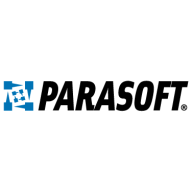

Parasoft SOAtest and UiPath Test Cloud are competitors in the testing solutions category. Users generally prefer UiPath Test Cloud for its flexibility and enhanced feature set, despite its higher price.
Features: Parasoft SOAtest offers comprehensive functionalities for creating and managing testing scenarios, supporting multiple scripting languages and data sources, and enabling virtualization. It specializes in testing REST and SOAP services with easy automation setup. UiPath Test Cloud provides a user-friendly approach, emphasizing rapid implementation across various technologies and enhancing testing efficiency through integration with continuous testing tools.
Room for Improvement: Parasoft SOAtest could benefit from a more user-friendly interface and improved reporting capabilities. Test case management and workspace stability are noted concerns. UiPath Test Cloud could enhance integration complexities and test case management while improving dashboard visibility and third-party tool integration. The tools' handling of complex scenarios also has room for refinement.
Ease of Deployment and Customer Service: Parasoft SOAtest operates primarily on-premises, which may restrict flexibility compared to UiPath Test Cloud’s cloud deployment options on public and hybrid clouds. Parasoft’s customer service is rated highly for its knowledgeable support. UiPath Test Cloud offers robust customer support, though some users suggest improvements in technical support precision and availability.
Pricing and ROI: Parasoft SOAtest is priced annually and is considered costly, but it offers significant value for specialized API testing solutions. UiPath Test Cloud, despite its higher price, is perceived as providing good value due to its extensive features like document understanding and AI integration, although its licensing style might be complex for smaller companies.
We found Parasoft SOAtest to be quick in building up test patterns, allowing us to create complex tests efficiently.
Tasks that previously took four or five minutes can now be completed in 20 to 30 seconds with the help of the tool.
They get into the meeting, understand the problem, and try to provide a solution quickly.
Support should be free, especially for product-related issues.
I would rate UiPath's support neutrally at a five.
Proper knowledge of Orchestrator and CI/CD processes makes the product truly scalable.
Scaling with UiPath Test Cloud is supported; they have the infrastructure to scale automation to meet business needs.
In particular use cases with numerous steps, it experiences crashes.
UiPath Test Suite has matured over the years and is now quite stable.
It is performing better than two to three years back; significant improvements have been made for complete project delivery.
One improvement would be to integrate it with modern technologies such as AI, so we can generate test cases by providing the details so that it can generate the structure, and later the person working can modify and enhance it.
It did not support enough of the protocols or cryptography formats we needed, which led us to create our own solutions.
In terms of improvements for Parasoft SOAtest, some features could be added or perhaps existing areas could be improved, such as lowering prices.
If they could add defect management, it could work independently without needing Jira.
I've noticed that adding more users impacts the speed, although nothing stops entirely.
UiPath should introduce compatibility so existing processes in Selenium or other tools can work seamlessly with UiPath Test automation.
Parasoft SOAtest is expensive, but it was acquired because the company was dissatisfied with Quick Test Pro.
Our customers usually pay around 30K to 35K for five licenses, which is priced per year.
The pricing of UiPath tends to be on the higher side, which can restrict smaller companies from adopting it.
The advantages include the custom tool and the extension tool where you can write scripts in different languages such as Groovy, Java, and Jython.
Parasoft SOAtest is very good at ensuring tests don't pass or fail until they genuinely pass or fail.
Parasoft SOAtest improves the quality of the application, increases security and security compliance, and it is a cost-effective tool.
The ability of the test suite to automate tests across a wide range of technologies is great since UiPath's background in RPA is specifically designed to automate basically any and all technologies.
Some of the best features I find with UiPath Test Cloud include the creation of end-to-end workflows with API integration.
The most valuable feature of UiPath Test Cloud that I have found is the TestManager dashboard, which integrates with Jira through Planview Tasktop.
| Product | Market Share (%) |
|---|---|
| UiPath Test Cloud | 4.3% |
| Parasoft SOAtest | 1.1% |
| Other | 94.6% |
| Company Size | Count |
|---|---|
| Small Business | 9 |
| Midsize Enterprise | 3 |
| Large Enterprise | 23 |
| Company Size | Count |
|---|---|
| Small Business | 4 |
| Midsize Enterprise | 4 |
| Large Enterprise | 19 |
Parasoft SOAtest delivers fully integrated API and web service testing capabilities that automate end-to-end functional API testing. Streamline automated testing with advanced codeless test creation for applications with multiple interfaces (REST & SOAP APIs, microservices, databases, and more).
SOAtest reduces the risk of security breaches and performance outages by transforming functional testing artifacts into security and load equivalents. Such reuse, along with continuous monitoring of APIs for change, allows faster and more efficient testing.
UiPath Test Cloud enhances test automation through agentic testing, integrating AI with human efforts for comprehensive quality assurance. It supports seamless integration with diverse tools, offering easy debugging and reduced maintenance costs with its low-code design and automation capabilities.
UiPath Test Cloud offers a unified platform facilitating automation and regression testing across applications like web frameworks and supply chain systems. Its intuitive interface integrates with tools such as Jenkins, allowing efficient workflows. While tackling mobile and automation challenges, it demands improvements in manual testing options and third-party integrations. Enhancements in file management, AI integration, and reporting are necessary for optimal performance.
What are the key features of UiPath Test Cloud?In industries like supply chain management and vendor systems, UiPath Test Cloud is implemented to ensure software stability post-updates, assisting in workflows and data handling. It supports communication with vendors while reducing time to market, even amid current challenges in mobile automation and third-party tool integration.
We monitor all Test Automation Tools reviews to prevent fraudulent reviews and keep review quality high. We do not post reviews by company employees or direct competitors. We validate each review for authenticity via cross-reference with LinkedIn, and personal follow-up with the reviewer when necessary.